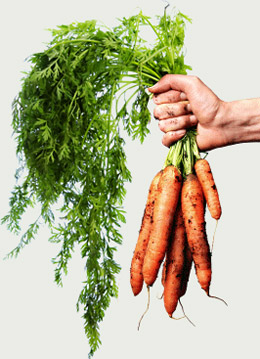
Tips for beginning gardeners, Part 2
Posted in Healthy Home & Garden on November 14, 2013. Last modified on April 30, 2019. Read disclaimer.
See previous: Beginning Gardening, part 1.
Growing the garden
- Fertilizing
When it comes to fertilizing your garden (or yard) more is NOT better. Plants can absorb the "vitamins and minerals" they receive from fertilizer only so fast. Too much fertilizer, released too quickly, can burn and dehydrate plants or cause them to grow in undesireable ways. It's best to start with a soil sample to see how much (if any) and what type of fertilizer is needed for the specific plants you are growing.
Organic: If using manures, aged manure should be incorporated before planting. During the growing season, supplement with compost or packaged products.
Non-organic: A granular fertilizer can be worked into the soil before planting (ex: 2 lb. 10-10-10 per 1000 sq. ft or 3 cups per 100 sq. ft.) Avoid excess nitrogen on fruiting vegetables (beans, tomatoes, peppers, etc.). - Water
The vegetable garden needs 1 inch of water each week -- either from rain or irrigation. Water more frequently while seeds are germinating and after transplanting. Run sprinklers in the morning so plants dry off quickly. Consider using drip irrigation or soaker hoses. - Mulch
Organic mulch helps maintain soil moisture, reduces soil temperature and reduces weeds. Do not apply too early -wait for the soil to warm up adequately. Most commonly used are straw or chopped leaves. A disadvantage can be slugs. - Trellising
Some vegetable plants grow best with support, such as tomatoes, beans, peas and sometimes cucumbers. - Weed control
Mulch helps. Hoe early (even before weeds appear) and frequently (every week or so) until your vegetables are large enough to create shade, which the weed seeds need to grow. Otherwise, be sure to pull weeds before they set seeds. - Disease control
Keep foliage dry as much as possible. Mulch helps for some things. Remove diseased leaves and plants. Sprays are preventative, not curative. - Insect control
Scout regularly. Hand-pick beetles and caterpillars. Use insecticidal soap for mites, aphids, whiteflies. Bacillus thuringiensis formulations are useful for caterpillars, other BT formulations for Colorado potato beetle larvae. Be careful with products such as carbaryl (sevin) and malathion, which can be very toxic to bees. Encourage beneficial insects and learn to tell the good bugs from the bad bugs.
LOW PRICES on Amazon's Top 100* Best Selling Gardening & Lawn Care Products
+ Free Shipping & Returns on Eligible Items.
(*Amazon's Top 100 list updated hourly.)
+ Free Shipping & Returns on Eligible Items.
(*Amazon's Top 100 list updated hourly.)
Reaping the harvest
- Harvest regularly
Another reason to keep the veggies close to the house. Nobody really uses zucchini as baseball bats. Some, such as beans, squash and peppers will stop producing if not picked. - Young and tender
Most vegetables are most flavorful and nutritious when young. There are some exceptions. Ripen tomatoes on the vine if possible. Melons and eggplant must also ripen on the vine. - Early in the day
Vegetables are at their freshest when the morning temperatures are still cool. Get vegetables in the refrigerator (except tomatoes) or processed as quickly as possible.
Finally:
- Record keeping is important. Next season you will want to know what was planted where so you can rotate crops, what worked and what didn't, which varieties you liked, etc. Learn from your mistakes.
- Every year is an experiment. Next year try a new crop or new variety.
- Keep it fun. Gardening should be enjoyable. Get the whole family involved.
- For more information on gardening. Check out www.ncstate-plants.net.
When to Harvest |
Bean, snaps | Every 2 days. Before seeds develop in pods. Snap easily when bent. | Broccoli | Head dark green, buds shut tight, before flowers open. | Cabbage | Heads feel hard and solid. | Collards, kale | Break off older leaves when they are 6 to 10 inches and still dark green. New leaves will grow from the center providing continuous harvest. Whole plants may be harvested. | Corn, sweet | Silks turn brown, liquid in kernels is clear. | Cucumbers | Every 2 days. Pickling types 3 to 5 inches long. Slicers 5 to 8 inches long. | Peas, green | Pods well rounded, still dark green. | Peas, edible-pod | Pods begin to swell, before seeds swell much. | Peppers, bell | Green peppers feel very firm when squeezed. Can be left to mature to red (or other colors). | Peppers, hot | Allow to attain full red color. | Squash, summer | Every 2 or 3 days. Fruit is soft and tender, 6 to 8 inches. |
|---|---|
| Tomatoes | For best flavor allow to attain full color on the vine. Store at room temperature. |
Back to: Beginning Gardening, page 1
Sources:
Linda Blue, Agricultural Extension Agent, North Carolina Cooperative Extension, Back to Basics: Starting a Vegetable Garden
 How being in love can effect our health
How being in love can effect our health How to cut onions without crying
How to cut onions without crying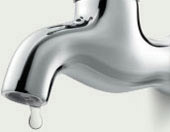 Hidden toxins in our homes and schools
Hidden toxins in our homes and schools Strategy for success with New Years resolutions
Strategy for success with New Years resolutions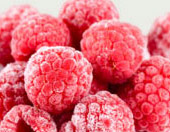 Tips for properly freezing foods
Tips for properly freezing foods Importance of strength training for seniors
Importance of strength training for seniors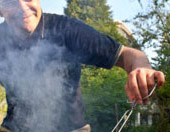 BBQ health and safety tips
BBQ health and safety tips Attracting butterflies to your garden
Attracting butterflies to your garden Teaching values to our kids
Teaching values to our kids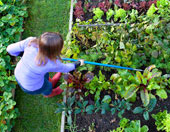 Guide to beginning a vegetable garden
Guide to beginning a vegetable garden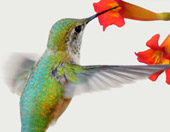 Attracting birds and hummingbirds
Attracting birds and hummingbirds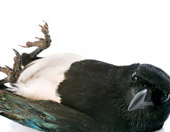 How to prevent birds from flying into glass windows
How to prevent birds from flying into glass windows When to take a child to the hospital
When to take a child to the hospital